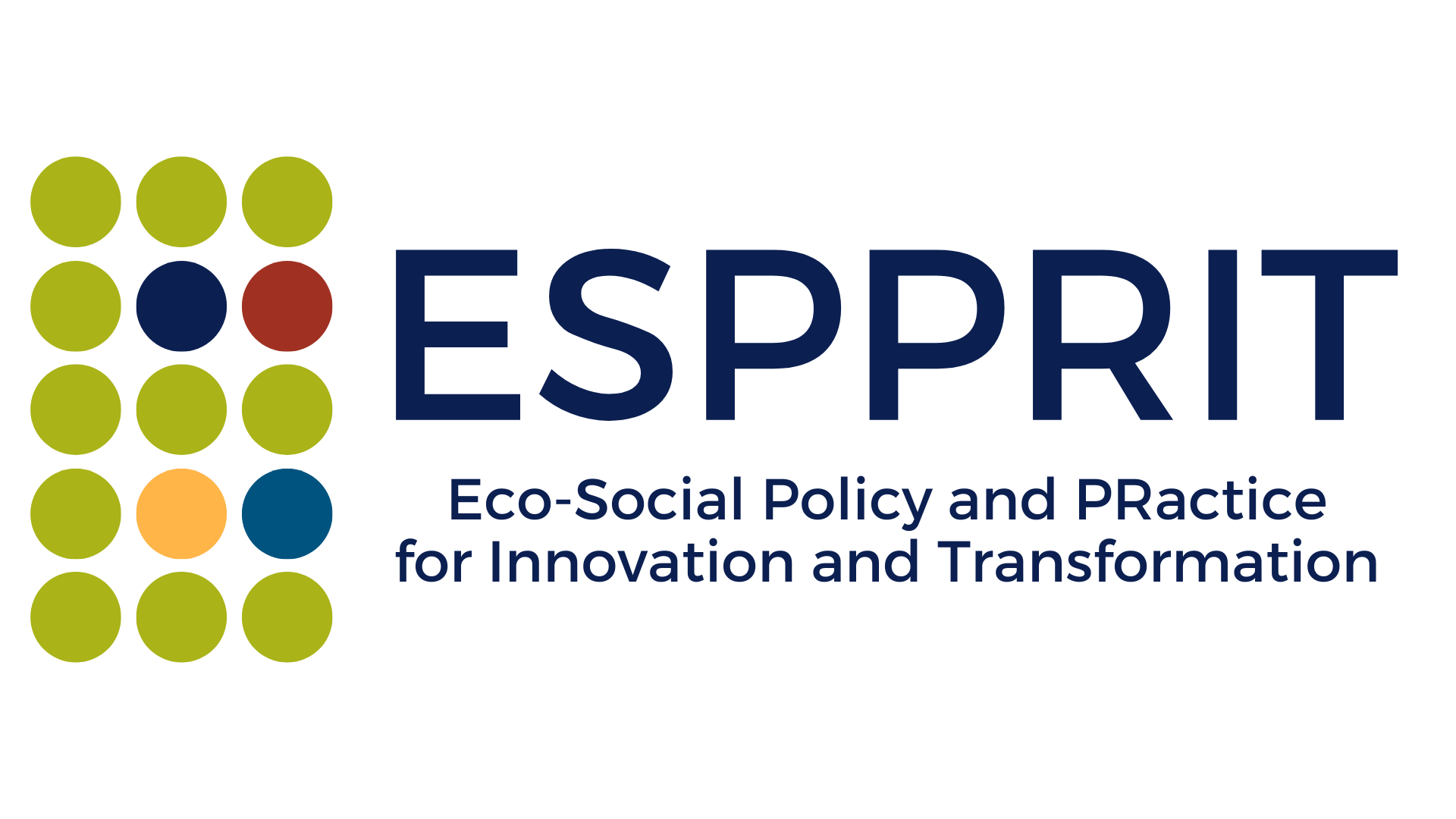ESPPRIT Organisers
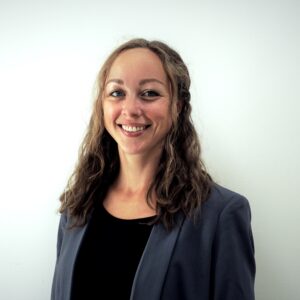
Astrid Krisch
Astrid is a Postdoctoral Research Fellow at the Global Centre on Healthcare and Urbanisation, Kellogg College, University of Oxford and works at the intersection of urban studies, regional planning, and innovation research. Her research interests focus on the governance of sustainability transformations and social innovations to implement climate action while reducing social and spatial inequalities. As an interdisciplinary scholar with a background in urban planning, urban and regional studies, and public health, her research combines approaches from geography and planning and social policy to better understand how to build sustainable wellbeing in place.
Email: [email protected]
Website: https://www.gchu.org.uk/about/
ResearchGate: https://www.researchgate.net/profile/Astrid_Krisch
LinkedIn: www.linkedin.com/in/astrid-krisch
ORCID: 0000-0002-9720-4178
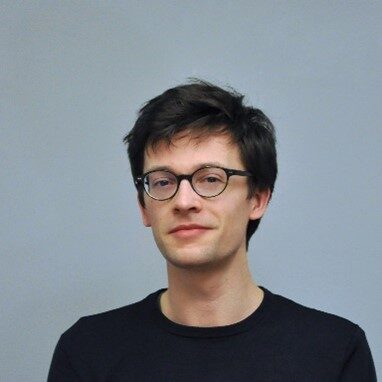
Lucas Barning
Lucas is a postdoctoral researcher at the Department of Geography and Regional Research, University of Vienna. With a background in human geography, he is interested in questions of social theory, governance, planning theory and the social and political dimensions of energy systems and their change, employing qualitative methodologies and STS approaches. In April 2024, he completed his dissertation, which examined the governance of energy infrastructure at the example of smart grid development in India, as well as his work in the Horizon 2020 project SHARED Green Deal. In his current research and teaching he is bridging the realms of energy transitions and spatial planning, while focusing on aspects of power relations and justice.
Email: [email protected]
Website: https://geographie.univie.ac.at/

Sarah Ware
Sarah is an experienced urban planning practitioner currently working as a Junior Visiting Researcher at the Department Environmental Sciences and Policy at the Central European University. Her research focus lies at the intersection of spatial planning and social ecological transformation, with a particular interest in governance and participation, degrowth, insurgent planning, social provisioning and (eco)feminist perspectives. In addition to RSA membership, Sarah is a member of the European Society for Ecological Economics, co-organiser of the Spaces Beyond Growth: Municipal Degrowth Network and member of the Postgrowth Cities Coalition.
Email: [email protected]
Webpage bio link: Sarah Ware | CEU People
Project affiliation REMASS
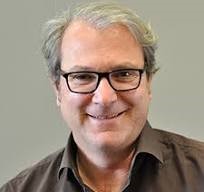
Alexander Hamedinger
Alexander is an economist and urban sociologist at the Vienna University of Technology, Institute for Spatial Planning, Department of Sociology. His research focuses on the topics of urban sociology, spatial theories, governance, planning theories, spatial planning policy, international urban development as well as methodology and research and planning design. In these fields he is concerned on the one hand with conveying theoretical and methodological foundations for spatial research and planning and on the other hand with discussing the contribution of these foundations to the solution of planning and socio-spatial problems.
Email: [email protected]
Website: https://www.tuwien.at/ar/soziologie/ueber-uns/team/ao-univprof-mag-dr-alexander-hamedinger
ESPPRIT Keynote Speakers
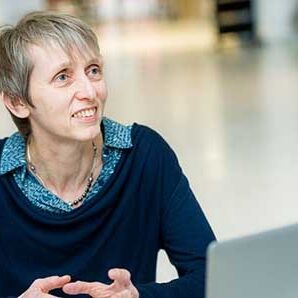
Julie Froud
Julie Froud is Professor of Financial Innovation at the University of Manchester’s Alliance Manchester Business School. She is also a member of the WISERD research centre, based at Cardiff University, which is one of the sponsors and hosts of the annual foundational economy conference.
Working with a team of UK based researchers, as well as being part of the European foundational economy network, she has played a key role in the development of foundational thinking and contributed to the development of the original Manifesto for the Foundational Economy in 2013 and the Foundational Economy book in 2018. Most recently, the team has published a new book When Nothing Works, which focuses on the crisis of liveability using UK empirics. The next phase of work will focus on 'making things work' to understand social innovation in the foundational economy.
Email: [email protected]
Website: https://www.wei.manchester.ac.uk/about/biographies/julie-froud/
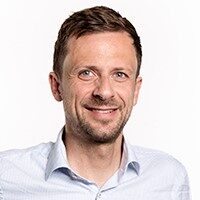
Teis Hansen
Teis is Professor at the Department of Food and Resource Economics, University of Copenhagen, and Senior Research Scientist at the Department of Technology Management, SINTEF, Trondheim. He is also a member of the Danish Government’s expert group on the role of research in the green transition, and a Semper Ardens Accomplish grant holder of the Carlsberg Foundation. Teis has an interest in the relations between geography, innovation, sustainability and policy. His research focuses on the importance of spatial aspects of innovation processes for sustainability transitions; transformative innovation policy; green urban and regional development; foundational economy; and technology transfer from developed to emerging economies. Empirically, his research is focused on the energy system, energy-intensive industries, maritime transport, and the bioeconomy.
Email: [email protected]
Website: https://ifro.ku.dk/english/staff/?pure=en/persons/263492
Twitter: @hansen_teis

Tuuli Hirvilammi
Tuuli is a Senior Research Fellow at the Faculty of Social Sciences, Unit of Social Research at Tampere University in Finland. She has a background in social policy and her research interests include sustainable wellbeing, eco-welfare state, ecosocial policies, welfare theories, degrowth and ecological economics.
Email: [email protected]
Website: https://www.tuni.fi/en/tuuli-hirvilammi
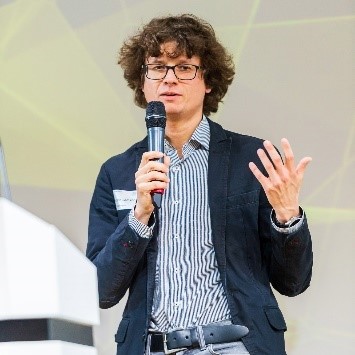
Christian Lamker
Christian is Assistant Professor Sustainable Transformation & Regional Planning at the University of Groningen (Netherlands). His research and teaching within the Department of Spatial Planning and Environment focuses on roles in planning, post-growth planning, regional planning, and leadership roles in sustainable transformation. He has studied and worked on spatial planning in Dortmund, Aachen, Auckland, Detroit and Melbourne and coordinates the Master programme Society, Sustainability and Planning (SSP) in Groningen.
Contact: [email protected], www.raumplaner.net and www.postgrowthplanning.com or Social Media: @raumplaner and @postgrowthplan
ORCID: https://orcid.org/0000-0002-1541-6952
University staff profile: https://www.rug.nl/staff/c.w.lamker/
Kevin Morgan
Kevin is Professor of Governance and Development in the School of Geography and Planning at Cardiff University, where he was the Dean of Engagement between 2013-2023. His interests include the theory, policy and practice of place-based innovation systems; multi-level governance regimes; experimental governance; sustainable food systems; and the foundational economy. Apart from his academic work he has worked with the European Commission, the OECD, and numerous governments, development agencies and civil society organisations in Europe.
Email: [email protected]
Website: https://profiles.cardiff.ac.uk/staff/morgankj
Federico Savini
Federico is associate professor in environmental planning, institutions and politics. His main theme of research is degrowth and urbanization. He studies the conflicting relation between institutions, urban commons and the metabolism of cities. He is founder and coordinator of the Postgrowth Cities Coalition.
Website: https://www.uva.nl/en/profile/s/a/f.savini/f.savini.html
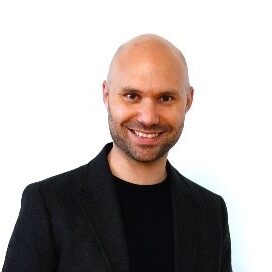
Johannes Suitner
Johannes, Tenure Track Urban & Regional Transformations, is a spatial planner (TU Wien) with expertise in local transformations. His research revolves around how ubiquitous transformation objectives – such as „energy transition” – are being negotiated locally and translated into specific spatial and political projects of urban and regional change. He studies why such transformations succeed or fail, what role local contexts play in this regard, and how local governance and planning themselves change as part of the process. Johannes’ thematic focus areas are regional energy transitions, transformative climate adaptation, the role of social innovations and urban experiments in transformation, and Vienna’s planning history.
Email: [email protected]
LinkedIn: https://www.linkedin.com/in/johannes-suitner-b3246212a/
John Tomaney
John is Pro-Provost (Regional Communities) and Professor of Urban and Regional Planning at University College London. He contributes to debates about local and regional development. He was a member of the UK070 Inquiry into Regional Inequalities (chaired by Lord Kerslake). Recently he co-authored Social Infrastructure and Left-Behind Places (Taylor and Francis, 2023) He chairs the charity, Redhills – the Durham Miners’ Hall.
ESPPRIT Participants

Linn Axelsson
Linn Axelsson is an Associate Professor of Human Geography at Stockholm University, Sweden. Her research focuses on just and inclusive transformative processes, with a particular emphasis on the fair and democratic inclusion of temporary labour. Her current work explores pathways to socially just transformation of food systems and so-called green industrialization.
Email: [email protected]
Webpage: https://www.su.se/english/profiles/liax9981-1.184588
ResearchGate: https://www.researchgate.net/profile/Linn-Axelsson
David Bassens
David is Full Professor of Economic Geography and Associate Director of Cosmopolis: Centre for Urban Research at VUB. His research engages in a critical analysis of the role of cities in global financialized capitalism and seeks to uncover emergent urban economic imaginaries that challenge this order. He is an active voice in debates on world and global cities, financial geographies of European Integration, geographies of FinTech, Islamic finance and emerging markets, and geographies of the circular and foundational economy. He is Editor of the journal Finance & Space.
Email: [email protected]
Website: https://www.cosmopolis.be

Richard Bärnthaler
Richard is lecturer/assistant professor in Ecological Economics at the Sustainability Research Institute (SRI) at the University of Leeds and board member at the European Society for Ecological Economics. His research interests include social provision, sufficiency as a social organising principle, sustainable wellbeing and eco-social policies, the political economy of climate change, and de-/post-growth.
Email: [email protected]
Website: https://environment.leeds.ac.uk/economics-policy-sustainability/staff/12593/dr-richard-barnthaler
X: @RBarnthaler
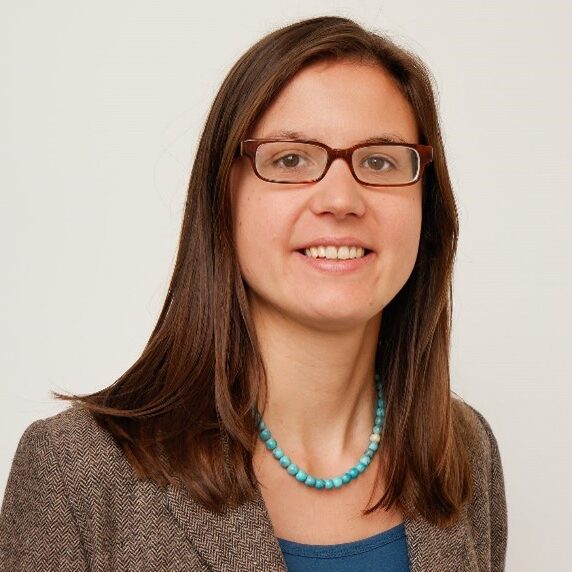
Katharina Bohnenberger
Katharina coordinates the research field “Social Policy and Environmental Sustainability” at the German Institute for Interdisciplinary Social Policy Research and is a researcher at the Institute for Socioeconomics at the University of Duisburg-Essen. In 2022 she founded the International Sustainable Welfare & Eco-Social Policy Network. Her main research areas are: sustainable welfare, socio-ecological transformation, sufficiency strategies, eco-social policy.
Research gate: https://www.researchgate.net/profile/Katharina_Bohnenberger
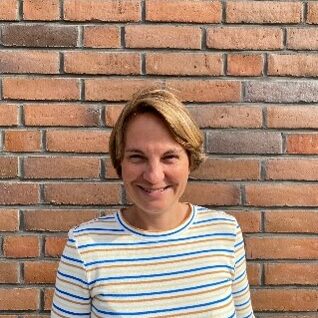
Camilla Chlebna
Camilla is a postdoctoral researcher in Economic Geography. Her research focuses on sustainability transitions primarily at the regional level, research at the intersections with innovations studies, sociology and transition studies. Empirical focus: energy, food, waste.
Email: [email protected]
LinkedIn: https://www.linkedin.com/in/camilla-chlebna-4829148/
ResearchGate: https://www.researchgate.net/profile/Camilla-Chlebna
Bluesky: https://bsky.app/profile/cchlebna.bsky.social
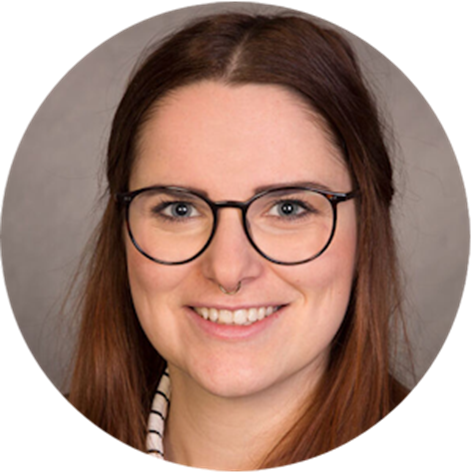
Julia Cremer
Julia is a PhD student in the Political Economy of Inequality programme at the University Duisburg-Essen at the Institute for Socio-Economics and co-host of the In der Wirtschaft podcast. Her areas of expertise: Political Economy, carbon inequality, eco-social policy.
Email: [email protected]
LinkedIn: https://www.linkedin.com/in/julia-c-cremer-a95879226/
X: https://twitter.com/JuliaAusKoeln
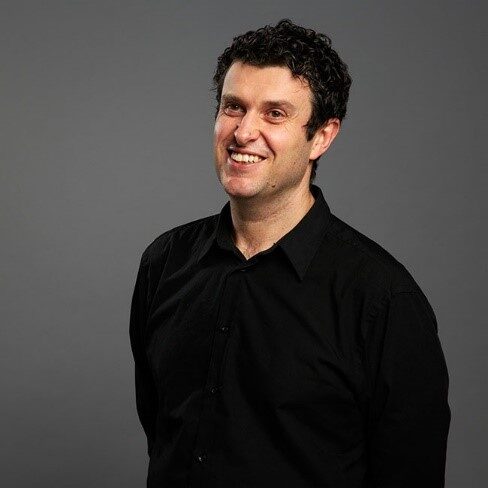
Richard Crisp
Richard is a researcher at the Centre for Regional Economic and Social Research (CRESR) at Sheffield Hallam University. He specialises in research on inclusive and sustainable economies, ‘alternative’ approaches to economic development, poverty, worklessness, and social and spatial inequalities.
Email: [email protected]
Website: https://www.shu.ac.uk/about-us/our-people/staff-profiles/richard-crisp
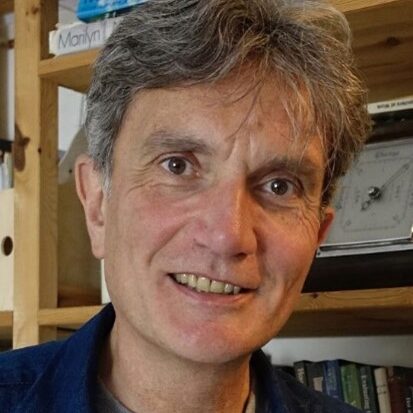
Timothy J. Dixon
Timothy is emeritus professor in the School of the Built Environment at the University of Reading and visiting fellow/research associate at Kellogg College/Global Centre on Healthcare and Urbanisation, University of Oxford. His research encompasses city foresight, futures studies, sustainable futures in the built environment and social sustainability.
Personal Webpage: www.timothyjdixon.com
LinkedIn: http://www.linkedin.com/pub/tim-dixon/19/18/b93
Twitter/X: twitter.com/UniRdg_SustBE
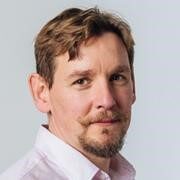
Dan Durrant
Dan is a Lecturer in Infrastructure Planning at University College London’s (UCL) Bartlett School of Planning (BSP) and an Alexander von Humboldt Fellow at IRI THEsys. Dan is interested in the way civil society shapes the governance of infrastructure systems as often very long term, expensive, disruptive sociotechnical projects dominated by state and market actors. Beyond the infrastructures themselves, he is interested in the spatial and societal visions that underpin and are often used to legitimate the spiralling costs and disruption caused by mega-infrastructure. Dan’s wider interests include participation in infrastructure planning and the governance and financing of urban development.
Email: [email protected]
Website: https://www.ucl.ac.uk/bartlett/planning/people/dr-dan-durrant
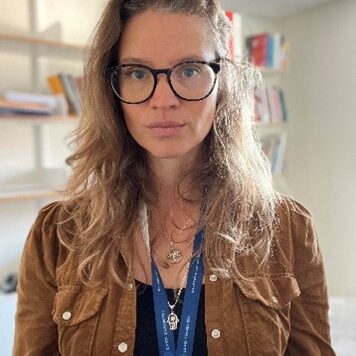
Kajsa Emilsson
Kajsa is a researcher and senior lecturer at the School of Social Work, Lund University, Sweden. She has a background in political science, sociology and welfare studies. Her research interest lies primarily in the intersection between social policy and climate change, including studies of public attitudes, political participation and civil society organizing. Kajsa is currently doing research on economic elites in times of social-ecological transformations, with a focus on the regulation, legitimacy, and influence of the super-rich vis à vis the ecological crisis.
Email: [email protected]
Website: https://www.soch.lu.se/en/kajsa-emilsson
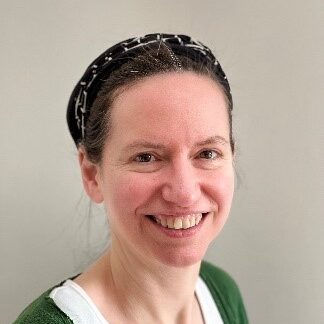
Francesca Froy
Francesca Froy is a Lecturer for the Master’s in Sustainable Urban Development at the University of Oxford and a Fellow of Kellogg College. She is also an Honorary Lecturer at the Bartlett School of Planning, where she participates in the Research Cluster on Everyday Economies. Prior to her academic roles she worked for over twenty years in policy analysis and delivery, and until 2015 was a senior policy analyst at the OECD Centre for Entrepreneurship, SMEs, Regions and Cities.
Contact: [email protected]
University website: https://www.conted.ox.ac.uk/profiles/francesca-froy
LinkedIn: https://www.linkedin.com/in/francesca-froy-5955a62/
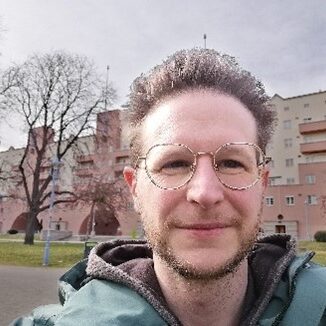
Dominik Gager
Dominik is Professor of Sustainable Transformation at Darmstadt University of Applied Sciences. His activities in teaching, research and transfer focus on the socio-ecological transformation of the public sector. Thematic priorities are climate protection, climate adaptation, the integrity of the biosphere and land use. Outside academia, he worked for five years in public administration in the field of sustainability, climate and environment.
Email: [email protected]
Website: https://fbw.h-da.de/fachbereich/personen/lehrende/dueber-dominik
ORCID: 0000-0002-5032-2644
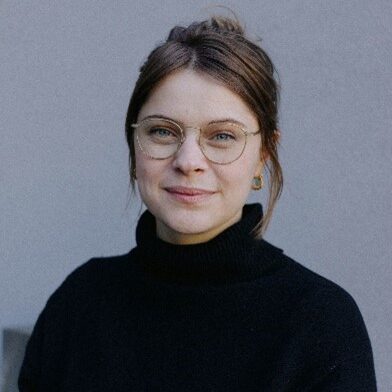
Anne Katharina Gerstenberg
Anne is a doctoral researcher at the Universität Hamburg within the Cluster of Excellence “Climate, Climatic Change, and Society” (CLICCS). As a trained political scientist, she investigates the politics of climate policy formulation and the role of policymakers’ ideas in solution suggestion and design. Further, in the project “The social dimension of the Green Deal”, together with Prof. Katharina Zimmermann, she investigates the interrelations of climate and social policy.
Email: [email protected]
Website: https://www.wiso.uni-hamburg.de/fachbereich-sowi/professuren/schnapp/team/gerstenberg-anne.html
Research gate: https://www.researchgate.net/profile/Anne-Gerstenberg
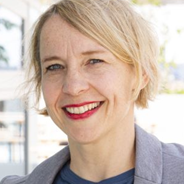
Margaret Haderer
Margaret is a Senior Researcher at the Institute of Spatial Planning, Research Unit Sociology at the University of Technology, Vienna. Margaret’s research activity is shaped by two main interests: 1) An interest in space (including residential space) understood as an embodiment and site of negotiation of norms and ideals of property, autonomy, participation, gender, and nature-society relations. 2) An interest in framings of, approaches and ‘solutions’ to social-ecological challenges such as climate change, including their scope and limitations.
Email: [email protected]
Website: https://www.tuwien.at/en/ar/soziologie/about-us/team/univ-ass-dr-margaret-haderer
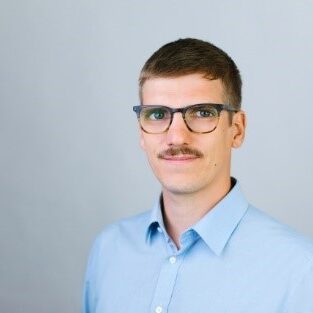
Wolfgang Haider
Wolfgang is a researcher and project coordinator at the Center for Social Innovation in Vienna, where he has been working since October 2015. He has utilised his transdisciplinary skills acquired in the fields of International Development (MA) and Political Science (BA) during his more than eight years of involvement in international research and innovation projects to explore complex societal transformations from various perspectives. Currently, he is pursuing a doctoral degree at the Copernicus Institute for Sustainable Development at Utrecht University, focusing on social innovation and policy and governance experiments within the context of transformative and mission-oriented innovation policy. Further more his research interest includes socio-technical transition, innovation governance and regional development.
Email: [email protected]
Website: https://www.zsi.at/de/users/38
LinkedIn: https://www.linkedin.com/in/wolfgang-haider-5120a1110/
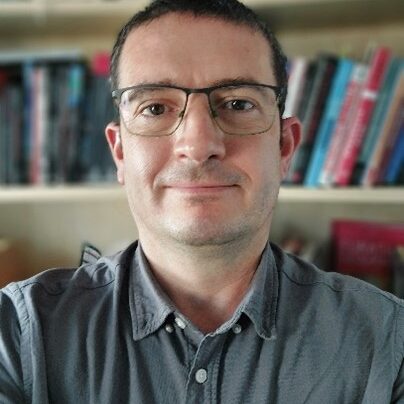
Nadir Kinossan
Nadir is Senior Researcher in the Department of Regional Geography of Europe at the Leibniz Institute for Regional Geography (IfL) in Leipzig, Germany. He is Associate Editor of Eurasian Geography and Economics and Co-editor of Raumforschung und Raumordnung | Spatial Research and Planning. His research interests include spatial policy and governance, the post-socialist city, and the agentic and policy aspects of change in old industrial regions in Europe. He was awarded a PhD in City and Regional Planning from Cardiff University, for work on urban governance in Russia (2010). Prior to IfL, he worked in academia, planning consultancy, and public administration.
LinkedIn: https://www.linkedin.com/in/nadirkinossian/
ResearchGate: https://www.researchgate.net/profile/Nadir-Kinossian
ORCID: https://orcid.org/0000-0002-5934-9210
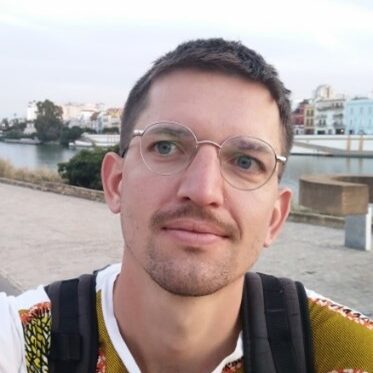
Karl Kraehmer
Karl is a researcher and activist interested in an ecologically sustainable and socially just degrowth transformation and particularly its urban and spatial dimensions. He is currently a research fellow at the Department of Cultures, Politics and Society of the University of Turin, Italy, Vice-president of the Fondazione di Comunità Porta Palazzo (www.fondazioneportapalazzo.org) and co-president of the Italian degrowth association (www.decrescitafelice.it).
Email: [email protected]
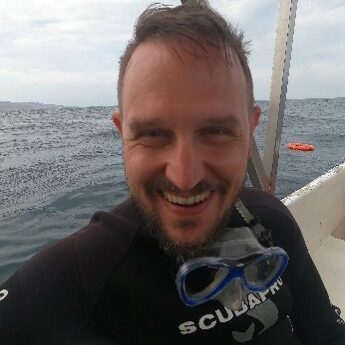
Michael Kull
Michael is senior scientist at the Natural Resources Institute Finland (LUKE) and holds a PhD in Political Science from the University of Helsinki, where he also is an associated professor. His research interests and publications include multilevel / territorial governance, rural development as well as participation and decision-making support in natural resource use and sustainability policies.
ORCID: https://orcid.org/0000-0002-6017-8519
Website: https://www.luke.fi/en
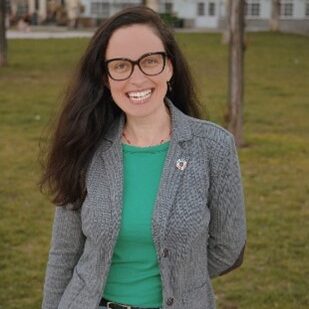
Luciana Maia
Environmentalist & urbanist by passion, consultant, facilitator & researcher by profession and engineer by formation, Luciana is a dreamer, world citizen and life-long learner. Working with development / international cooperation for the past 17 years, she is currently involved in enabling urban stakeholders to implement global agendas locally. Experienced project manager, trainer & networker, Luci has been engaging mainly with government and research organisations, but also with NGOs and associations in Germany as well as in the global south, with experiences in Bangladesh, India, China, Ghana and Brazil, among others. Her current (research) interests touches upon participation, resilience and transformation and well-being beyond growth in cities, and how to facilitate structural changes in municipalities to align municipal development with social and ecological needs.
Email: [email protected]
Website: https://www.futurbanos.eu
LinkedIn: https://www.linkedin.com/in/lucianamaia/
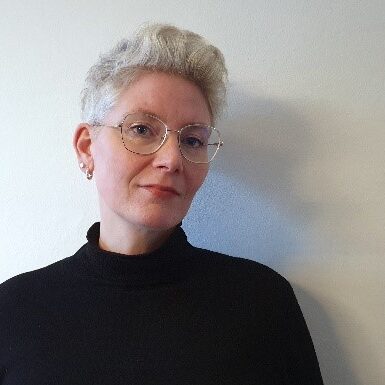
Meike Levin-Keitel
Meike is a scientist in spatial planning and transitions at the University of Vienna, Department of Geography and Regional Research, Professor for Spatial Research and Spatial Planning. Her research focuses on questions of spatial development in connection with transformation processes towards sustainability. At the interface between planning theory principles and action-related planning approaches and instruments, she is interested in the extent to which social transformations are taking place in our regions, cities and urban districts, how they are changing them and what prerequisites the respective spaces have for change. Most of Meike’s research work deals with decision-making in complex transformation processes - and with the associated question of how to shape the spatial development of our environment in terms of a sustainable way of life. This involves a practical and transdisciplinary research perspective, characterized by the development of joint research questions with local people and a shared learning process.
Email: [email protected]
Website: https://geographie.univie.ac.at/en/working-groups/spatial-research-and-spatial-planning/
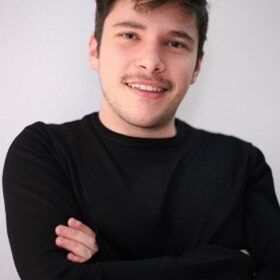
Matteo Mandelli
Matteo is a Postdoctoral Research Fellow at the Laboratoire interdisciplinaire d'évaluation des politiques publiques in SciencesPo Paris. He holds a PhD in Political Studies from the University of Milan. He previously collaborated on research projects by the European Trade Union Institute, the European Social Observatory, Fondazione Feltrinelli and the Norwegian Social Research institute; and he also worked as Policy Assistant with the European Anti-Poverty Network. He was visiting scholar at Maynooth University and at the Autonomous University of Barcelona. His core research interest is the politics of eco-social policies in the European Union and in its Member States, a topic on which he co-authored different international publications. He is a board member of the Sustainable Welfare and Eco-social Policy Network.
Email: [email protected]
Website: https://www.sciencespo.fr/liepp/fr/users/matteomandelli.html
Researchgate: https://www.researchgate.net/profile/Matteo-Mandelli-2
Linkedin: https://www.linkedin.com/in/matteo-mandelli-176aa1175/?originalSubdomain=fr
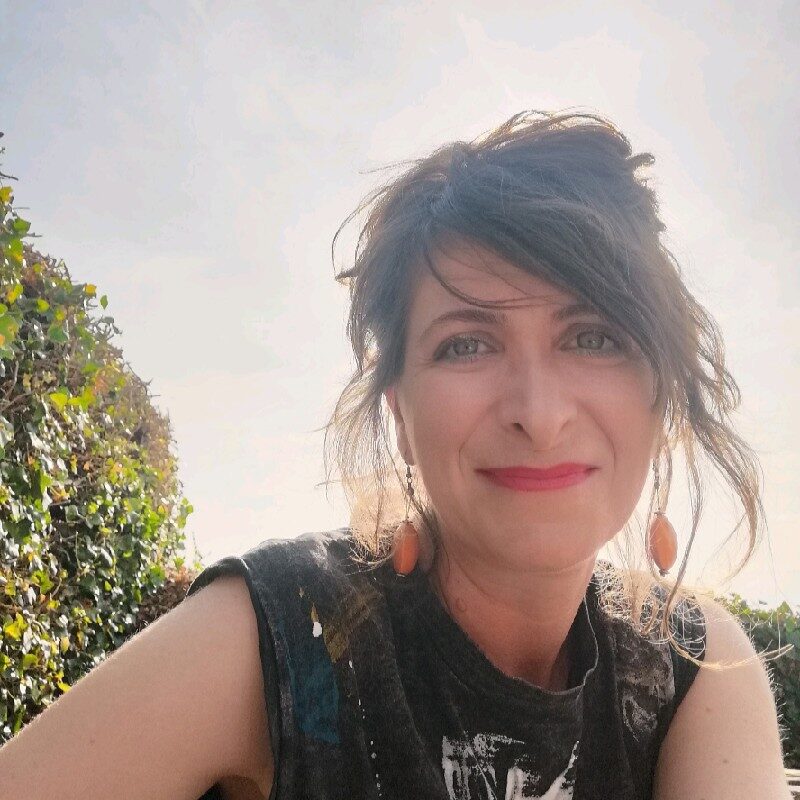
Guldem Ozatagan
Guldem is a research fellow in Geography at the University of Exeter. Her research focuses on the governance of sustainability transitions, place-based conflicts and contestations in relation to sustainable living, and participatory mechanisms for sustainable and inclusive geographies.
Email: [email protected]
website: https://geography.exeter.ac.uk/people/profile/index.php?username=go313
LinkedIn: Güldem (Saral) Özatagan

Rhiannon Pugh
Rhiannon is a Senior Lecturer in innovation studies at CIRCLE and the Department for Design Sciences, Lund University in Sweden. Her research interests include: regional economic development; economic geographies of weaker, post-industrial and peripheral regions; the roles of universities in regional development; gender perspectives within economic geography, and innovation and entrepreneurship. She is currently working on projects around regional economic development in peripheral and cross-border regions. She is an editor at Regional Studies, Regional Science.
Email: [email protected]
Website: https://portal.research.lu.se/en/persons/rhiannon-pugh
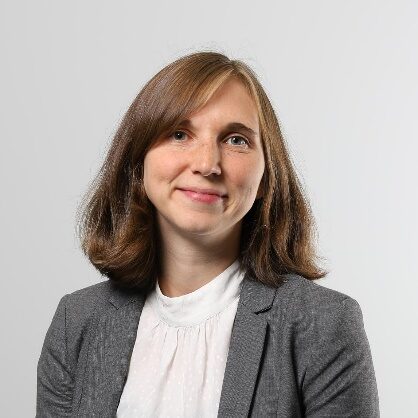
Eva Purkathofer
Eva is a postdoctoral researcher at Aalto University, Finland. She is an editor of the European Journal of Spatial Development and coordinator of the AESOP thematic group on Transboundary Planning and Governance. Her current research deals with sustainable urban development as a travelling planning idea and the interplay of agency and structure.
Email: [email protected]
Website: https://research.aalto.fi/en/persons/eva-purkarthofer
LinkedIn: https://www.linkedin.com/in/eva-purkarthofer/
Researchgate: https://www.researchgate.net/profile/Eva-Purkarthofer
X: @EvaPurk
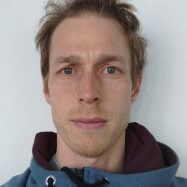
Benedikt Schmid
Benedikt is a Research Associate at the Department of Geography of Global Change at the University of Freiburg. His research focuses on the institutionalisation of practices and forms of organisation with socio-ecological objectives, with a particular emphasis on transformation processes towards sustainable and non-growth economic forms.
Email: [email protected]
Website: https://geographie.uni-freiburg.de/en/professorships/geography-of-global-change/team-contact-details/Schmid-benedikt/index

Katherine Sugar
Katherine is an early career researcher working within the School of Geosciences at the University of Edinburgh and Environmental Change Institute at University of Oxford. Her research is broadly concerned with urban sustainability. She is particularly interested in the governance of low carbon and inclusive transitions at the local level - the main actors involved, the barriers encountered, the innovative approaches and pathways undertaken in practice. Her most recent research projects have included the evaluation of the Energy Efficient Scotland programme, investigating the governance of small and medium enterprises to net zero, and finance and public procurement for net zero.
Email: [email protected]; [email protected]
Website: https://www.sps.ed.ac.uk/staff/katherine-sugar; https://www.eci.ox.ac.uk/person/dr-katherine-sugar
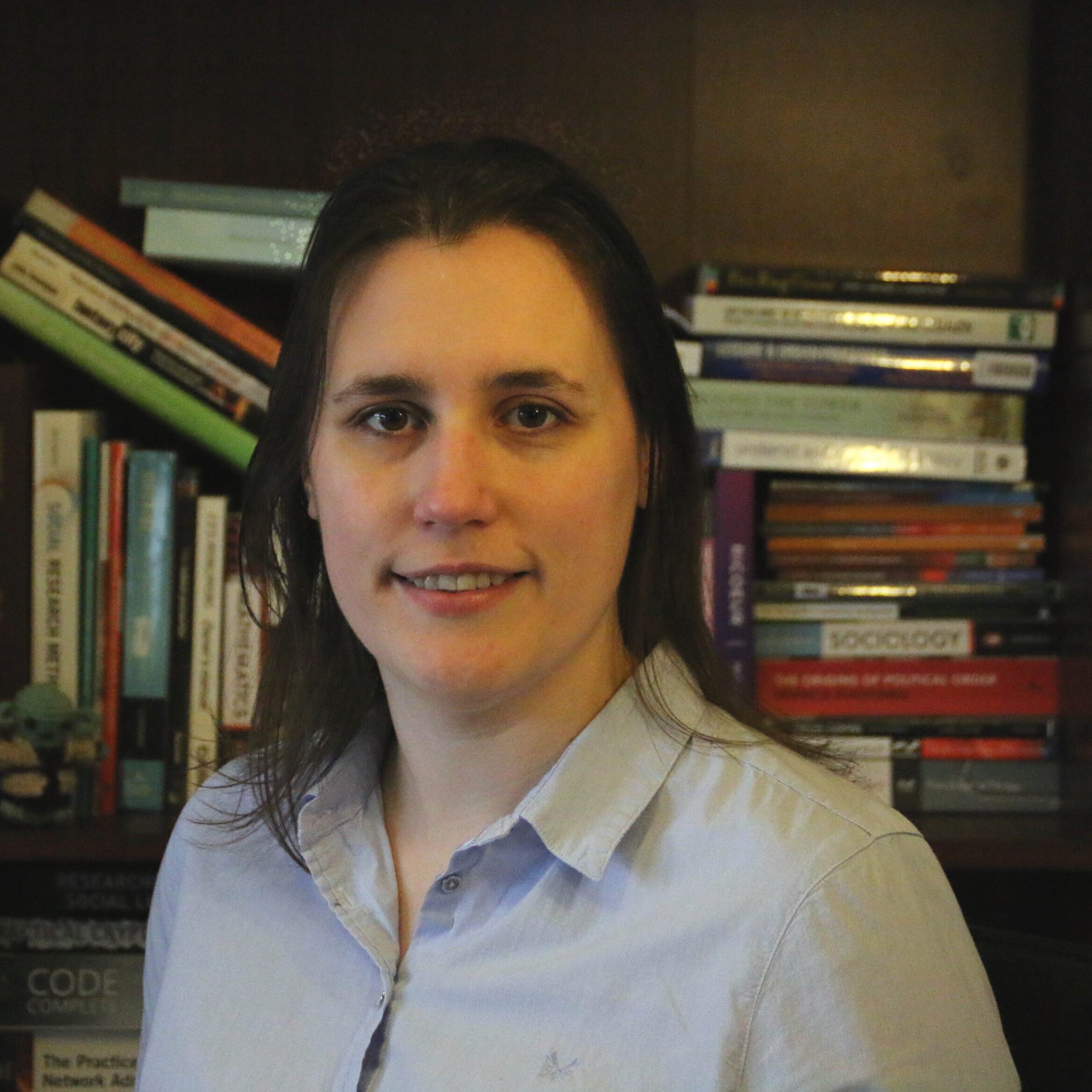
Helen Symons
Helen is a Senior Lecturer in Sport Management and Development at the University of Portsmouth. Her research interests focus on how sport can regenerate or redevelop sites in both urban and rural contexts. Currently, looking at the use of sport within the framework of social innovation in the South West of the UK.
Email: [email protected]
Website: https://www.port.ac.uk/about-us/structure-and-governance/our-people/our-staff/helen-symons
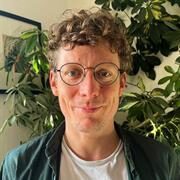
Matt Thompson
Matt is a Lecturer in Urban Studies at the Bartlett School of Planning, UCL. He is an urban geographer working at the intersection of theory, policy and practice. His research focuses on critical urban theory, urban political economy, social innovation, local state transformation, municipalism, and the politics of housing and regeneration.
Email: [email protected]
Website: https://profiles.ucl.ac.uk/86102-matt-thompson
X: @MattWThompson

Malu Villela
Malu is a Lecturer in Management at the University of Essex Business School. Her research explores organising experiments in local economies that have been forging inclusive, sustainable, and democratic sociodigital futures. She focuses on the infrastructures and practices needed for alternative organisations and new economies to thrive in ways that promote equity, social justice, agency, and sustainability.
Email: [email protected]
Website: https://www.essex.ac.uk/people/VILLE75307/Malu-Villela
X: @malu_villela
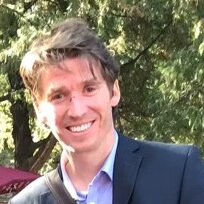
David Waite
David is a Lecturer in Urban Studies at the University of Glasgow. His research focuses on the development of second-tier city-regions and he is interested in both the underpinning production systems at and the governance responses for these places. Recent work has looked at the emergence of alternative development agendas that seek to balance environmental, social and economic objectives.
Email: [email protected]
Website: https://www.gla.ac.uk/schools/socialpolitical/staff/davidwaite/#researchinterests
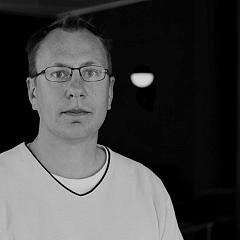
Mikko Weckroth
Mikko is a Senior Scientist at the Natural Resources Institute Finland (LUKE). His research focuses on urban rural relations, regional development, spatial and environmental justice, just transformation, geographies of wellbeing and human values. Currently, he works also as a Research Manager at LUKE where his focus area is trying to figure out the spatial and systemic nature of transition to circular bioeconomy.
Email: [email protected]
Website: https://www.luke.fi/en/experts/mikko-weckroth
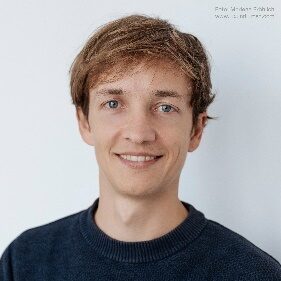
Harald Wieser
Harald is an economic sociologist and ecological economist at the Austrian Institute for SME Research. His research focuses on the role of public policy in transformation processes towards a climate-neutral and sustainable economy. In addition to studying transformation processes ‘on the ground’, Harald regularly conducts policy evaluations in the domains of innovation, enterprise, and climate policy.
Email: [email protected]
Website: https://www.kmuforschung.ac.at/teammembers/harald-wieser/?lang=en

Grace Wright-Arora
Katharina is assistant professor for economic sociology at University of Hamburg. She is an expert on comparative welfare state research and works extensively on the interaction of social and environmental protection. She is founding member and co-coordinator of the Sustainable Welfare and Eco-Social Policy Network.
Grace studies socioenvironmental transitions, with a focus on urban areas and the Latin American region, and uses qualitative and participatory methods. Her DPhil explores alternative urbanisms in Mexico City, specifically looking at the role of gender, commoning and care in small-scale, urban metabolic transitions. She previously conducted research on pollution, activism, and infrastructure politics in UK rivers for her MSc in Nature, Society and Environmental Governance.
Email: [email protected]
PhD candidate | Oxford Geography
Consultant | Equity in Net Zero Governance
REAL Post-Growth, ICTA-UAB
Grand Union ESRC Scholar
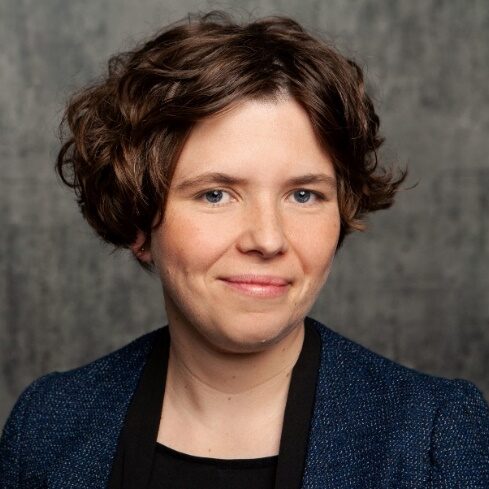
Katharina Zimmermann
Katharina is assistant professor for economic sociology at University of Hamburg. She is an expert on comparative welfare state research and works extensively on the interaction of social and environmental protection. She is founding member and co-coordinator of the Sustainable Welfare and Eco-Social Policy Network.
Email: [email protected]
Website: https://www.wiso.uni-hamburg.de/fachbereich-sozoek/professuren/zimmermann/team/zimmermann-katharina.html

